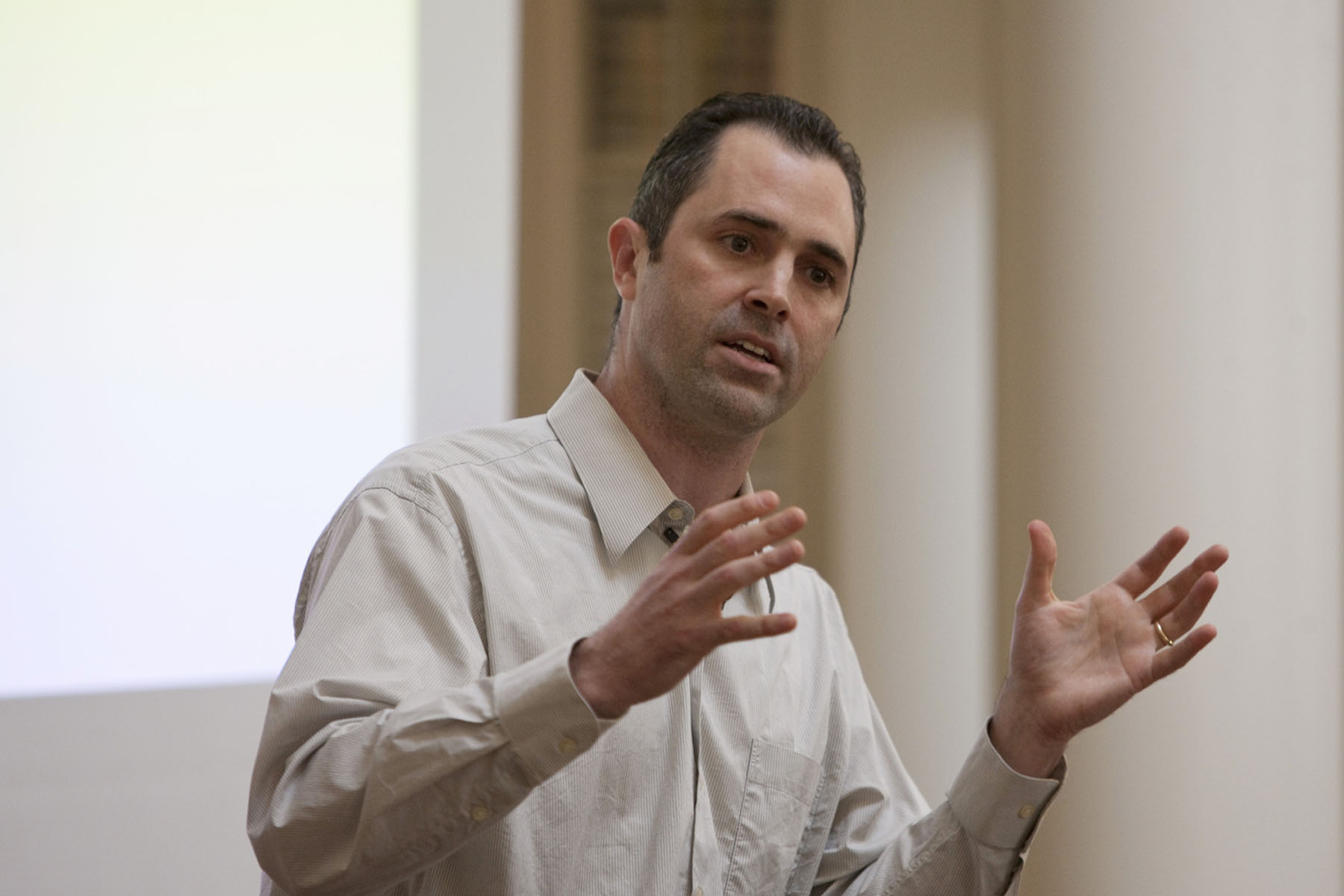February 23, 2010 — Brian Nosek, whose research interests include implicit cognition, stereotyping and prejudice, will deliver the University of Virginia's fifth annual Walter N. Ridley Distinguished Lecture on March 23. His talk on "Mind Bugs: The Ordinary Origins of Bias" will begin at 4 p.m. in the Dome Room of the Rotunda, with a reception to follow in Pavilion I.
The annual lecture, sponsored by the Curry School of Education and the Ridley Scholarship Fund, honors the late Walter Ridley, who earned his Ph.D. from the Curry School in 1953, and in so doing became the first African-American to graduate from U.Va. and the first to receive a doctorate from a white Southern university.
The Ridley lecture is always free and open to the public. However, this year homework is suggested.
"We are encouraging people to visit our online tool, try out implicit measures of a variety of biases on themselves, get feedback and post to the Curry Web site before they attend the talk," said Nosek, an associate professor of psychology and director of Project Implicit at U.Va.
Project Implicit is an Internet-based, multi-university collaboration of research and education about implicit cognition – thoughts and feelings that exist outside of awareness or control, Nosek explained. Anyone can visit. Many people use the site in their courses. Visitors should follow the "demonstration" button, he noted.
Nosek was selected as this year's speaker based on his commitment to equity and social justice, said Stanley Trent, Curry's assistant dean of diversity and equity. His work honors Ridley's legacy, which included a long and distinguished career in higher education as professor, administrator, academic dean and president of the American Teachers Association. He died Sept. 26, 1996, at age 86.
Past Ridley lecturers include Margaret Beale Spencer, Marshall Field IV Professor of Urban Education at the University of Chicago; Henry L. Johnson, former U.S. assistant secretary for elementary and secondary education; Jacqueline Jordan Irvine, Charles Howard Candler Professor of Urban Education at Emory University; and James Banks, director of the Center for Multicultural Education at the University of Washington.
In the event of an overflow crowd, a live video feed of the lecture will be available in the Rotunda's Lower West Oval Room.
The annual lecture, sponsored by the Curry School of Education and the Ridley Scholarship Fund, honors the late Walter Ridley, who earned his Ph.D. from the Curry School in 1953, and in so doing became the first African-American to graduate from U.Va. and the first to receive a doctorate from a white Southern university.
The Ridley lecture is always free and open to the public. However, this year homework is suggested.
"We are encouraging people to visit our online tool, try out implicit measures of a variety of biases on themselves, get feedback and post to the Curry Web site before they attend the talk," said Nosek, an associate professor of psychology and director of Project Implicit at U.Va.
Project Implicit is an Internet-based, multi-university collaboration of research and education about implicit cognition – thoughts and feelings that exist outside of awareness or control, Nosek explained. Anyone can visit. Many people use the site in their courses. Visitors should follow the "demonstration" button, he noted.
Nosek was selected as this year's speaker based on his commitment to equity and social justice, said Stanley Trent, Curry's assistant dean of diversity and equity. His work honors Ridley's legacy, which included a long and distinguished career in higher education as professor, administrator, academic dean and president of the American Teachers Association. He died Sept. 26, 1996, at age 86.
Past Ridley lecturers include Margaret Beale Spencer, Marshall Field IV Professor of Urban Education at the University of Chicago; Henry L. Johnson, former U.S. assistant secretary for elementary and secondary education; Jacqueline Jordan Irvine, Charles Howard Candler Professor of Urban Education at Emory University; and James Banks, director of the Center for Multicultural Education at the University of Washington.
In the event of an overflow crowd, a live video feed of the lecture will be available in the Rotunda's Lower West Oval Room.
— By Rebecca Arrington
Media Contact
Article Information
February 23, 2010
/content/uvas-nosek-discuss-bias-annual-ridley-distinguished-lecture-march-23

